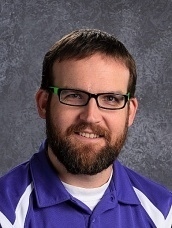




Participants who attend this session will learn practical ways to implement Maker Challenges, gather ideas for challenges, and gain access to resources for developing Maker Challenges in their classrooms/districts. Maker Challenges are problem-based activities that ask students to create a product that addresses a problem. Our process for developing these challenges will be shared. This will include digital access to our folder of past challenges and materials from previous challenges will be available for participants to explore. This resource will provide real examples of how we have implemented Maker Challenges. Each challenge contains a video that outlines the five steps of the maker cycle design process. The video helps students organize their thinking and approach the challenge in an organized fashion. We have found that students demonstrate resilience when they are attempting a challenge. They are often required to make multiple revisions to their original plan. Instead of giving up, students work hard to improve their product so that they can meet the expectations set in the challenge. The 4C's (critical thinking, creativity, collaboration and communication) are all ingrained into each challenge. Students are encouraged to stretch beyond their comfort zone, think outside the box and come up with a unique product. Our district (seven elementaries, two junior highs, and one high school) has planned, organized and have provided Maker Challenges for the last four years. Maker Challenges are meant to be used by teachers with any degree of experience or expertise. This could easily be used as an entry level activity to engage students in the design process of imagine, plan, create, test/improve, and share. Students and teachers look forward to our monthly challenges each year. This could include building a catapult that is able to launch a foam ball a set distance, programming a rolling robot to drive a specific path or creating a piece of clothing from recycled materials. Some challenges require specific technology tools, including Edison bots and basic circuits, while others utilize basic materials such as tape, cardboard and straws. These activities are adaptable to a wide audience. Our process creates one challenge per month that is presented to all students PK-12. The products/solutions tend to be more sophisticated in the older grades, yet all students are able to have success with the challenge. All students submit their final product to Flip.com. Flip is an online platform that allows students to create their own videos and submit them to a classroom page. Students are able to view other videos on the page and respond to them as well. Edison robots are small robotic cars that can be run via remote, barcodes, or programmed with various programming languages.
After attendees have had time to experiment and play with the materials and technology for themselves, they will have access to a QR code and short link (as well as postcards with the QR code and short link on them). The QR code/short link will link to an online resource which will include lesson plans, resources, videos, scripts, material lists, ties to the 4 C’s, and more.
https://makered.org/wp-content/uploads/2014/09/Makerspace-Playbook-Feb-2013.pdf
https://www.tandfonline.com/doi/full/10.1080/00220671.2021.1914937
https://stemeducationjournal.springeropen.com/articles/10.1186/s40594-018-0129-0
https://scholarworks.uni.edu/cgi/viewcontent.cgi?article=1908&context=grp